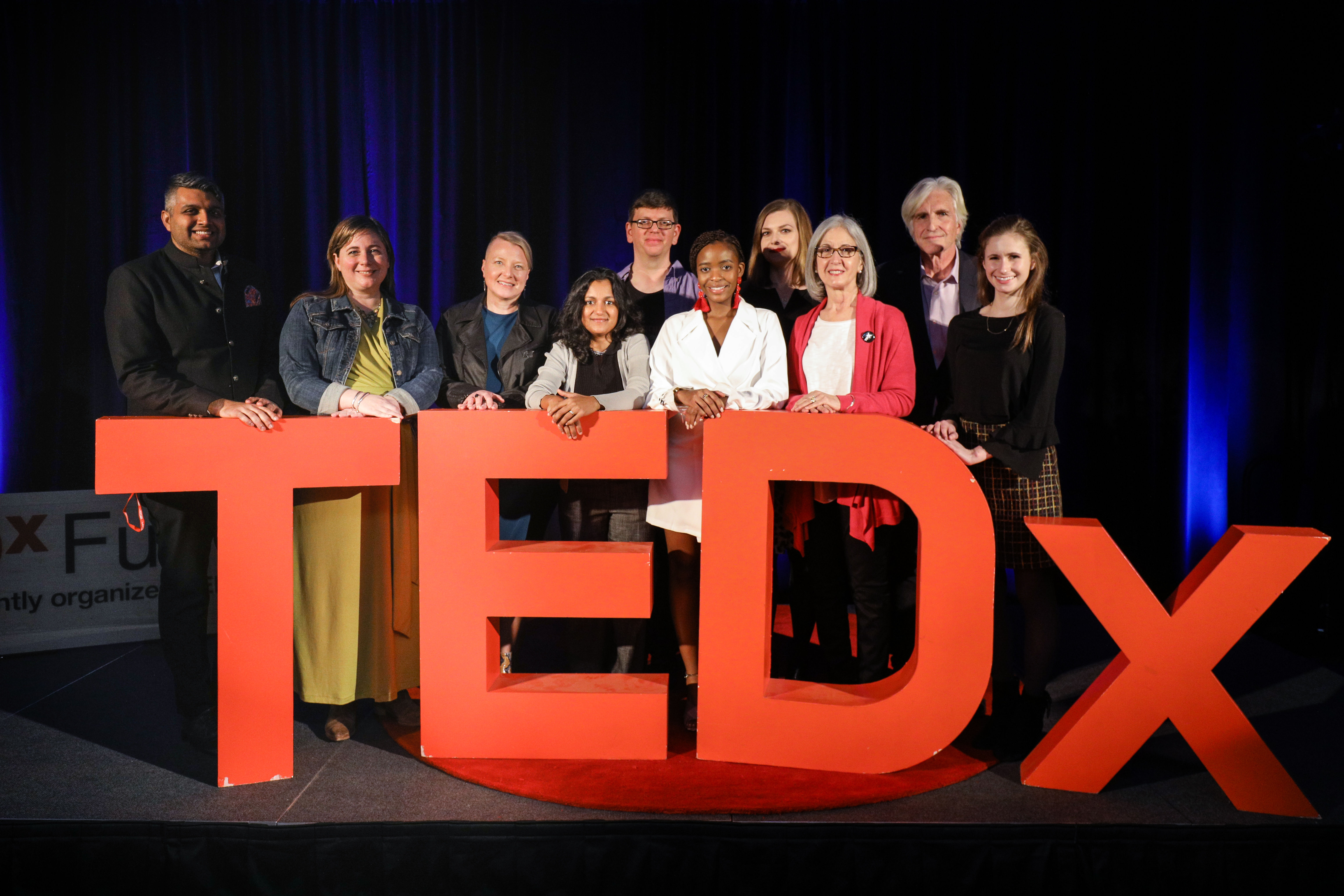Saturday, Feb. 17, Furman University hosted its seventh annual TEDx. Each year, TEDx attempts to bring new ideas to campus in an intimate setting.. The themes of this year’s talks remained eclectic as always, ranging from conversations about climate change and the struggle for justice around the globe to the power of science, the empathizing character of horror movies and Senior Nomonde Gila’s empowering discourse on “The Future of Feminism: The Power Behind Educating African Girls.”
This year Furman’s TEDx team placed an extra emphasis on intimacy. “TEDx should be a conversation and a dialogue — not a lecture,” emphasized student organizer, Senior Jacob Lollis. In order to transform Younts Conference Center into a space where this dialogue could be had, Lollis and his team decided to cut the number of talks from 12 to 9.
The TEDx team’s decision to cut the number of speakers had several consequences. First, it made an already intense application process — last year 70 speakers applied and only 12 could be accepted — even more competitive. Next, it shortened the length of the conference, which had the tendency to drag on for hours in previous years. Finally, it affected attendance. n comparison to last year’s sold out event, there were significantly less people in attendance this year.
Lollis said that the lower attendance was at least, in part intentional. Focusing more on intimacy means focusing less on numbers. Moreover, he explained that it was simply “a busy weekend at Furman.” TEDx must be planned nearly a year in advance and the TEDx team — no matter how hard they might try — cannot control every variable.
Nonetheless, the conference took full advantage of those who were in attendance, inviting guests to engage and confront challenging new ideas and perspectives. “Could you all come closer to the stage, please?” Dr. Aaron Simmons of the Philosophy Department, who hosted and moderated TEDx again this year, asked guests to move forward multiple times throughout the event. Motivated in part by the low attendance, Dr. Simmons’ request also symbolizes everything that TEDx stands for: becoming closer, learning together and moving forward as a community.
One of Lollis’ favorite presentations was Dana Sturtevant and Hilary Kinavey’s, titled “Body Trust is a Birthright.” “It challenged the status quo and pushed the norm, that’s what TEDx is all about,” said Lollis. He also enjoyed Junior Olivia Larner’s talk “Confronting the Invisible,” which brought a new perspective to chronic illness and invited guests to “come on a journey with Larner,” explained Lollis.
In sum, as long as the Furman community continues to support TEDx, more ideas will come to campus, challenging students to be better. In turn, TEDx strives to continue to improve each year, relying on its strengths and improving its weaknesses. Next year, Lollis hopes TEDx maintains its intimate feel and improves its attendance, targeting all sections of the Furman family and the larger Greenville community.
For a more thorough review of the talks, visit http://tedxfurmanu.com
